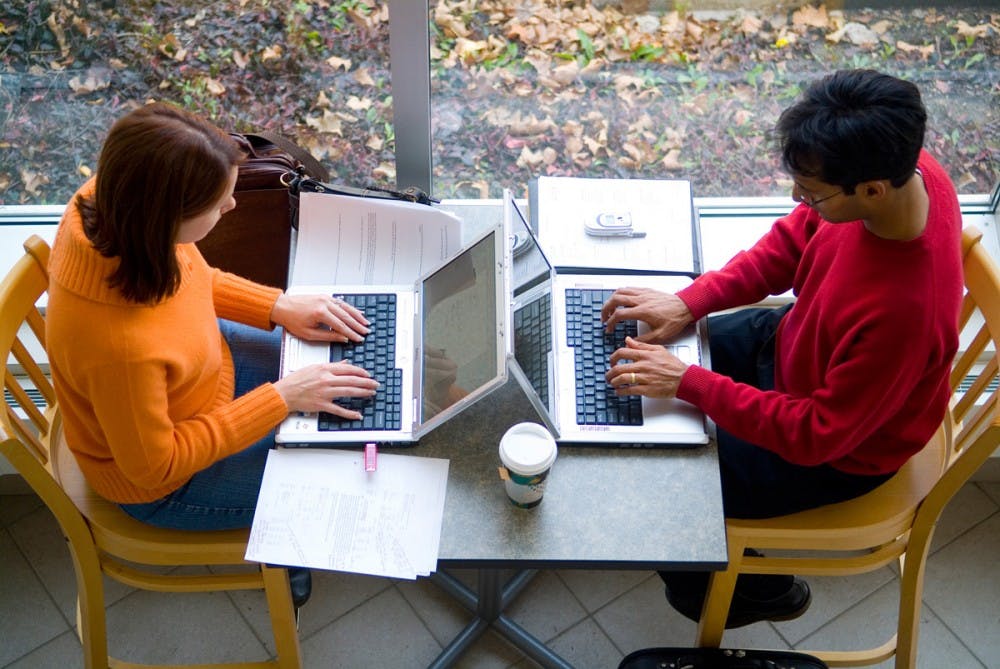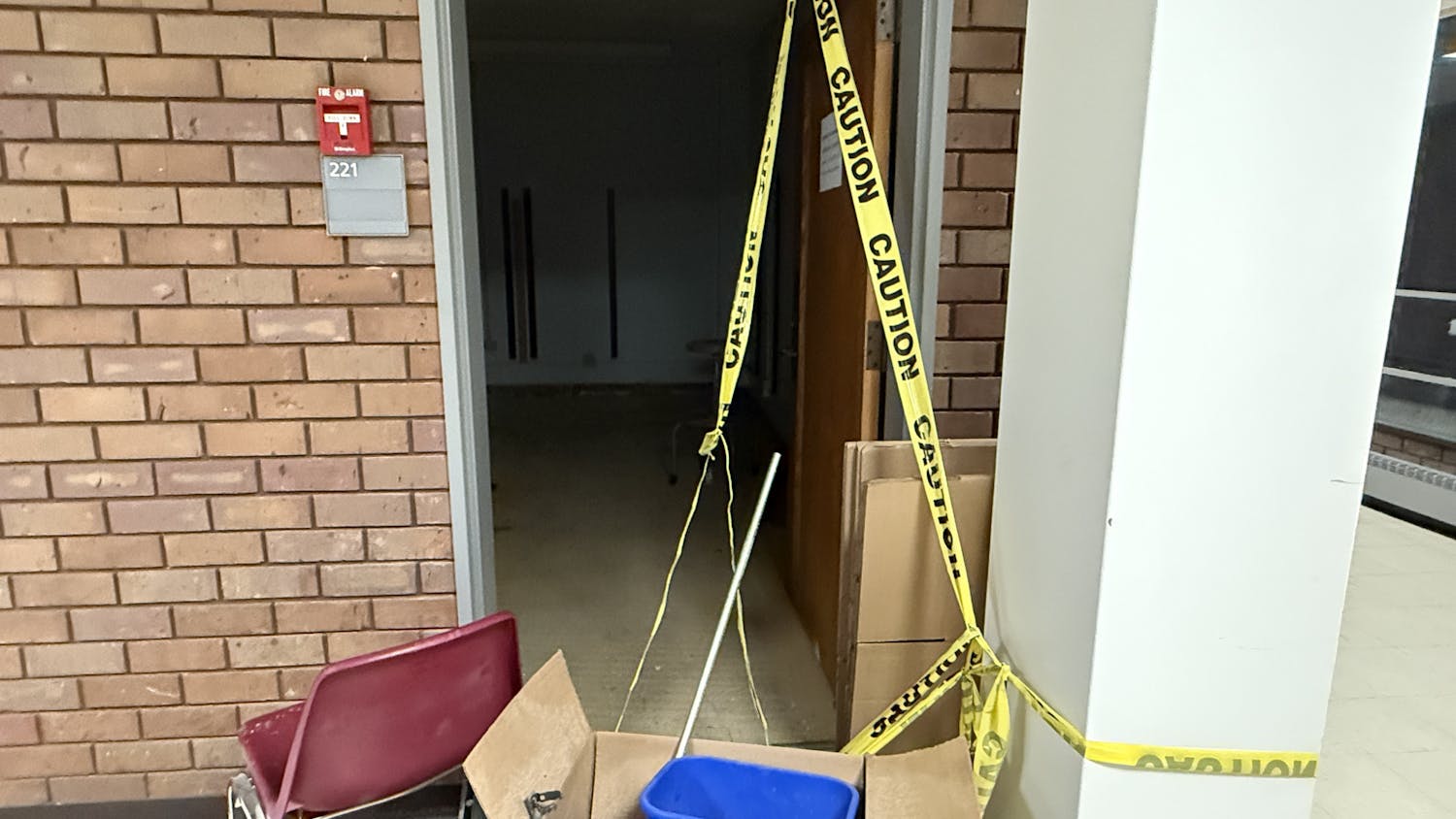A problem common to college campuses is finding the best library, lounge or study area for Wi-Fi. UB is no exception.
This past summer UB Information Technology (UBIT) began a three-year initiative called Wi-Fi Boost. Wi-Fi Boost is only in its early stages and has been deployed in only three on-campus locations thus far: the Computing Center, the Natural Sciences Complex and Richmond Hall in the Ellicott Complex.
According to J. Brice Bible, vice president and chief information officer of UBIT, the three-year process will cost the university upwards of $3 million in funds provided by the state – meaning there will be no direct cost to students. He said if all goes to plan, the initiative might cost less than $3 million.
With the growing use of technology across campus, “[UB] needs more access points to support the density of usage,” Bible said.
The basis of this initiative is giving students faster Wi-Fi. To do this, UBIT is tasked with installing, replacing and renovating 8,000-plus access points across campus. Access points are routers around campus that students and faculty connect to when they log on to UB Secure, UB Wireless, UB Gaming or UB Guest on their devices.
Deployments are occurring on a daily basis with Fronczak Hall, Baldy Hall, O’Brian Hall, Lockwood Hall and Capen Hall. All of these buildings will receive the Wi-Fi boost by Thanksgiving break. O’Brian Hall and the Flint bus stop will also be a part of the early deployments. The Student Union will not be completed until the spring of 2016.
Richmond Hall in the Ellicott Complex is currently the only residence hall receiving the boost under a testing period. UBIT hopes to equip all residence halls by the end of the three-year project and the more populated areas on campus should be finished by the end of the school year.
The installation of additional access points will help students find Wi-Fi in more places and for longer periods of time, according to Bible.
These access points are inconspicuously located in the ceilings of buildings or mounted on walls. They are strategically placed based on analysis of the density of usage from one access point to the next, Bible said.
Some students noticed a difference in speed, compatibility and convenience of the new Wi-Fi as soon as they arrived on campus this fall.
David Kirshensteyn, a senior business administration major, noticed a difference in Wi-Fi connection within the first two days of being back on campus.
“It is easier to check my email when I’m walking between classes,” Kirshensteyn said.
Other students are skeptical about the changes.
Michael Loewy, a sophomore art major, has only been on campus for a year but still isn’t thrilled with the current state of Wi-Fi on campus.
“There has never been anything that has made me say, ‘Yeah this Wi-Fi’s great,’” Loewy said.
Throughout the early stages of the summer, Bible and UBIT decided upon a provider best suited to deliver the campus the most seamless Wi-Fi it could give. When they figured out their two best candidates, they staged what they call a “bake off.”
A bake off is a head-to-head competition between two vendors trying to win over a potential client. The vendors contending for UB’s Wi-Fi overhaul were Aruba Networks and Cisco Systems, who provided UB’s Wi-Fi hardware in the past. Aruba and Cisco’s products were each installed on a different floor of the Computing Center in Lockwood Library and then tested thoroughly by UBIT engineers.
A UBIT engineer moved a cart with two laptops installed with mobile network analysis software. Engineers connected to each vendor’s network and measured the strength and speeds of the network before moving to another location in the building and conduct the same tests. This process went on for several weeks until UBIT selected Aruba Networks.
Another major factor behind the decision was cost. Aruba was able to provide UB with a discount that made the entire project immensely more cost efficient. Bible said Aruba’s devices are also more easily installable compared to Cisco.
UBIT will promote the initiative by hanging posters throughout the school year whenever it is working on a certain building. Students will receive updates on the UBIT website. The comments and suggestions tab on the UBIT website is open for student opinions on the Wi-Fi boost.
A previous version of this article stated that the Student Union's Wi-Fi has already been upgraded. It has been corrected to reflect that the Student Union's Wi-Fi boost will not be completed until the spring of 2016.
Evan Schneider is a staff writer and can be reached at news@ubspectrum.com.





